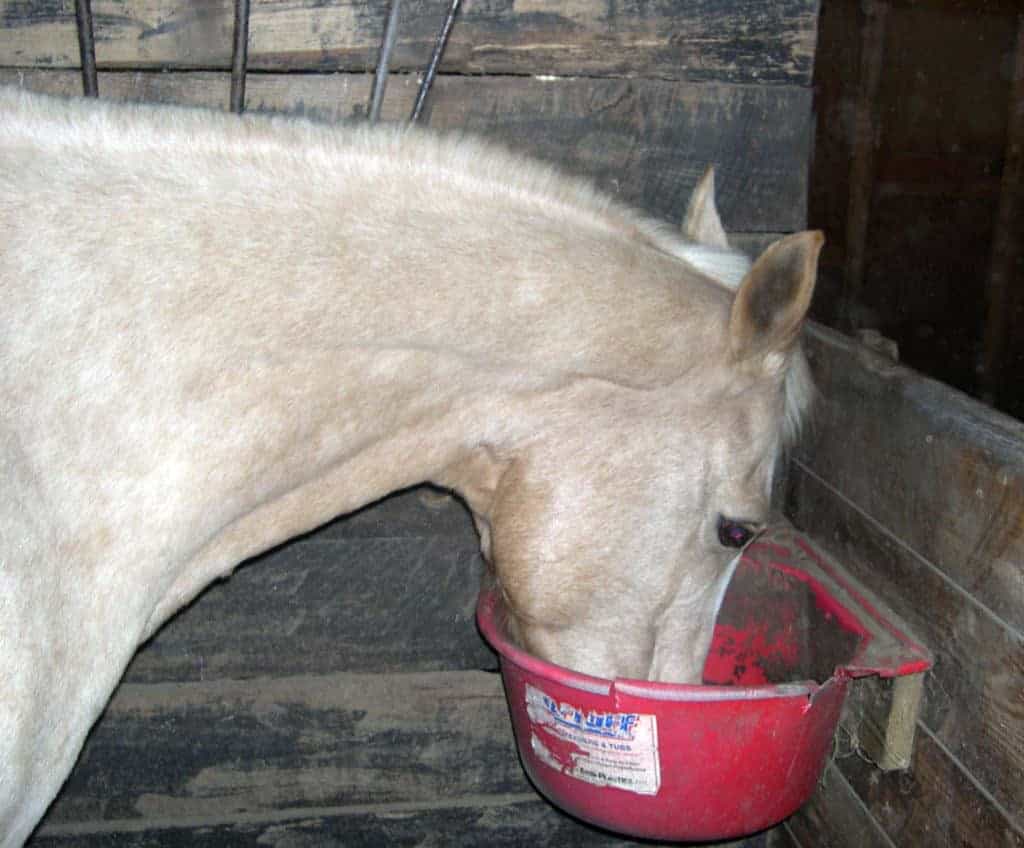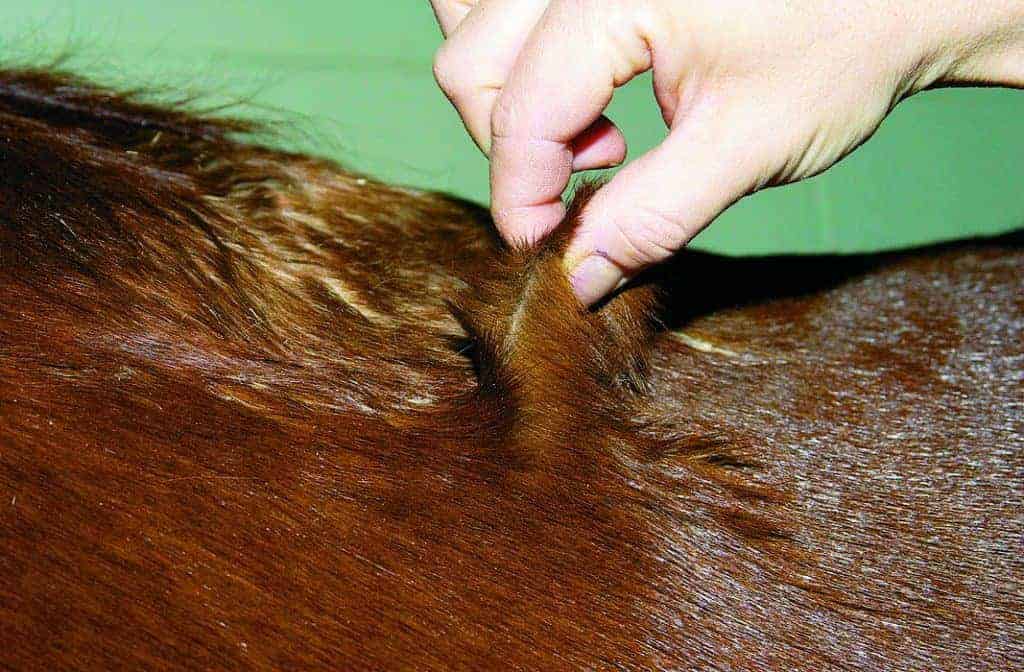
Managing Equine Genetic Disorders with Nutrition
Managing diet can help alleviate signs of some equine genetic disorders, such as PSSM and HYPP.

Managing diet can help alleviate signs of some equine genetic disorders, such as PSSM and HYPP.

The test will screen for five potentially fatal genetic diseases often found in Quarter Horses.

Geneticists have created tools and tests that help horse breeders select for healthy foals. Furthermore, access to the equine genome means scientists can examine common diseases and conditions and find ways to prevent (and one day treat) them.
Triheptanoin does not appear to be a good fat supplement for polysaccharide storage myopathy (PSSM) horses.
Collaborative efforts between researchers on both sides of the Atlantic have identified that a genetic mutation in enzyme glycogen synthase 1 (GYS1) is an important cause of polysaccharide storage myopathy (PSSM, a form of
The study group’s objectives were to determine if there is a difference in blood glucose and insulin response to feeding hay types with varying water soluble sugar and starch (NSC) content between horses with PSSM and control horses.
Not only is polysaccharide storage myopathy (PSSM) a common and important muscular disorder in various horse breeds in the United States, but according to a recent research report, it is also a common diagnosis in horses in the Unite
Polysaccharide storage myopathy (PSSM) is a metabolic muscle problem found in at least 20 breeds, including Quarter Horses, Paints, Appaloosas, and drafts. An affected horse suffers bouts of exertional rhabdomyolysis (tying-up), muscle tremors
Despite having recently identified a genetic defect that results in polysaccharide storage myopathy (PSSM) in many horses, the underlying cause of PSSM remains to be determined in others.
Veterinary researchers from the University of Minnesota have identified a gene potentially responsible for polysaccharide storage myopathy (PSSM) in Quarter Horses and, in doing so, they uncovered a number of research leads to pursue. In a
Last year my 18-year-old Quarter Horse mare became very sensitive to touch on her back and hindquarters.
Owners of Warmbloods with debilitating–or sometimes just plain baffling–muscle disorders can get useful and reliable answers about their horses’ conditions through a relatively simple muscle biopsy. So say University of Minnesota researchers,
A genetic mutation in an enzyme called muscle glycogen synthase might be responsible for polysaccharide storage myopathy (PSSM)–a debilitating and life-threatening disease in horses characterized by abnormally high glycogen (the storage form of
The results of equine research funded by the Morris Animal Foundation (MAF) in 2007 added to scientists’ understanding of foal pneumonia, hereditary muscle disorders, laminitis, and pharmacology.